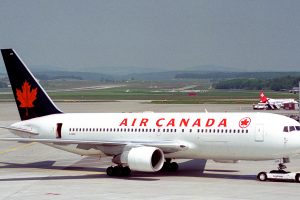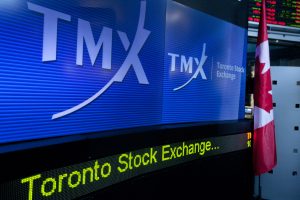Key findings:
– 72.5% or around 7 million smokers buy tobacco from sources where UK taxes won‘t be paid including illicit tobacco and from abroad.
– 41% of smokers bought tobacco from illicit tobacco sources.
– Smokers on higher incomes (over £60,000) were as likely to buy illicit as those on low incomes (under £6,000).
– 48% of smokers who earned less than £6,000 bought tobacco from illicit sources.
– 40% of smokers who earned more than £60,000 bought tobacco from illicit sources.
– Smokers are stockpiling cheap or illicit tobacco with 53% of cigarette smokers buying 200 or more when they buy from sources that won‘t have paid UK tax.
– 88% of smokers thought that tobacco prices are too high – just 2% thought that prices were too low.
– 57% of smokers said that rising prices tempt them to purchase tobacco that won’t have paid UK tax.
– Taxes on tobacco have increased by 65% since 2010 and by 5.9% at the 2017 spring Budget.
– 45% of smokers said that the ban on small tobacco packs and the introduction of mandatory plain packaging tempted them to purchase illegal tobacco. 31% said it did not tempt them.
– Analysis by Oxford Economics says that banning small tobacco packs will cost HM Treasury £2.1 billion in its first year.
– HM Treasury lost out on £3 billion from tobacco purchases which didn’t pay UK taxes in 2015-16.
– Only 12% of smokers who knew of illicit tobacco in their local area reported it to the authorities.
– This is a 40% fall compared to the 20% who reported it in 2016.
Tobacco on which UK taxes is not paid is a major issue for law enforcement and taxpayers. £3 billion of tax were lost to the illicit trade and cross border shopping in 2015-16, an amount that cannot be spent on important public services. The link between high tobacco taxes and the illicit market is acknowledged by many leading independent institutions including the Royal United Services Institute.
This survey of over 12,000 smokers supports these conclusions with the vast majority saying that tobacco prices are too high; government taxes account for up to 90% of the price of a pack of cigarettes.
The regulatory changes to the UK tobacco market this year – the ban on small packs and the introduction of plain packaging – might make the problem worse, with 45% of smokers saying they are more likely to purchase illicit tobacco because of the changes. Moreover, smokers are increasingly buying larger amounts of untaxed tobacco with 53% saying they buy 200 cigarettes or more from non-taxed sources.
In addition, government policies appear to have alienated smokers so they are not concerned when they know illegal tobacco is being sold in their local area. Just 12% of smokers who had seen illicit tobacco reported it (a 40% decrease on last year (20%) and 64% of those who did not say this is because it is ‘none of their business’ (a 7 percentage point increase on 2016). There is also growing evidence found by a recent Trading Standards report to suggest the children are increasingly accessing illicit tobacco given its widespread availability and affordability.
Overall this survey confirms that the Government’s policies do not have the support of smokers and are likely to be a large contributing factor to the high level of illegal tobacco in the UK.
Responding to this year’s findings, TMA Director General, Giles Roca, said:
“These results reveal the true extent of how the Government‘s high tax policy, in creating some of the highest tobacco prices in Europe, has continued to push smokers to buy from non UK duty paid and illegal sources. High taxes have cost the Treasury billions of pounds in lost revenues whilst giving a boost to the criminals who are behind the illegal trade. There is also worrying evidence that children are increasingly accessing tobacco from these illicit sources.“
“The regulations that came fully into force this year banning small tobacco packs and introducing plain packaging are making the problem worse by pushing smokers towards the illicit market rather than encouraging them to quit.”
“There is a real risk that the problem could be made worse if the Government decides to increase tobacco duty for a second time in nine months in the upcoming Budget. These findings suggest the Government needs to completely re-think its tobacco taxation policy.“
ENDS
Notes to editors
1. The findings are drawn from a survey of 12,605 smokers from across the UK conducted in June 2017.
2. This is the fourth year that the TMA has polled smokers to find out their attitudes towards illicit tobacco.
3. £3 billion of tax from tobacco products was lost to the illicit trade (£2.4 billion) and cross border shopping £600 million) in 2015-16. HMRC, 2016, Measuring tax gaps, tobacco tax gap estimates 2015-16.
4. Oxford Economics estimated that the impact of the ban of packs of fewer than 20 cigarettes and hand rolling tobacco smaller than 30grams would be a reduction in tax revenue of £2.1 billion in its first year.
5. The Treasury raised tobacco duty at the budget in March 2017 by 2% above inflation. The autumn budget will take place on 22ndNovember 2017.
6. A survey undertaken by North West Trading Standards in 2015 found that 39% of children had purchased cigarettes with non-English health warnings.
7. The Tobacco Manufacturers’ Association (TMA) is the trade association for the UK’s tobacco industry. Our members are British American Tobacco UK Ltd, Gallaher Ltd (a member of the JTI Group of companies) and Imperial Tobacco Ltd.
8. Findings from previous year’s surveys can be found at http://www.the-tma.org.uk.
SOURCE The Tobacco Manufacturers’ Association (TMA
Powered by WPeMatico




